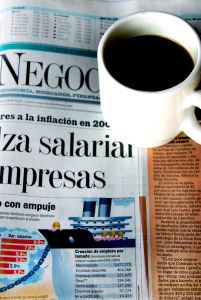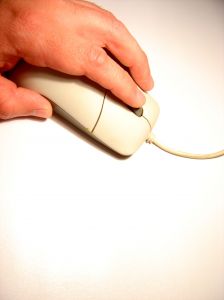
A copyright is "a set of exclusive rights granted by governments to regulate the use of a particular expression of an idea or information." These rights usually serve to restrict the ability of individuals to copy, distribute or republish protected works and to protect the ownership of such works. We're all familiar with copyrights and their importance -- we know that it is illegal to make and sell copies of movies, music or books.
However, in the digital age, copyrights and what they protect has gotten less clear. Access to media is so much easier these days. People trade high-quality copies of songs with an ease and quickness that was not possible 10 years ago. Musicians -- record companies, really -- have been facing loss of revenue due to the wide availability of free copies of their products.
Even more at risk than music and movies are the published, written ideas of individuals and companies. Formerly, these texts were -- at the very least -- published in magazines, newspapers or books and had physical weight and presence which would discourage people from out and out copying. Nowadays, with the prevalence of online newspapers, journals and even blogs, the ease with which one can copy and paste content that is not their own makes it all too tempting. Copyright violations are rampant and there is little one can do.
Some copyrights are very lenient. The content on Wikipedia, for example, is made freely available for republishing and reuse so long as one follows certain rules. Their copyright statement says that as long as one doesn't impede the right of other people to copy the material and one provides credit to the original authors (which I do by way of a direct link to any article I make use of) then reposting and reusing their material is legal.
On the other hand, many sites closely guard their content. The Chicago Tribune's website, chicagotribune.com publishes much of the content of their newspaper. Their copyright statement says that it is legal to read, interact with, download and/or print one copy of any piece of content on their site. However, it is expressly forbidden to repost, copy, publish or otherwise distribute any content on their site. That means that copying a story from chicagotribune.com and pasting it into a blog entry -- even if one quotes the source and mentions the original copyright -- is a violation of that copyright.
Some copyright quotes:
- Lawyer: Principal Skinner, "The Happiest Place on Earth" is a registered Disneyland copyright.
Principal Skinner: Oh now, gentlemen, it's just a small school carnival.
Lawyer: And it's heading for a great big lawsuit. You made a big mistake, Skinner.
Principal Skinner: Well, so did you. You got an ex-Green Beret mad.
[he finger-thrusts the first goon in the Adam's Apple, then kicks the lawyer in the chest; they both go down groaning; as the second goon runs away, Skinner picks up the lawyer's briefcase and flings it into the air; in the distance, it knocks down the goon]
Principal Skinner: Copyright expired. (from The Simpsons) - “Only one thing is impossible for God: To find any sense in any copyright law on the planet.” -- Mark Twain
- “My script was copyrighted in 1999 while I was in college, and theirs was copyrighted in 2001, the same year that I was getting investors and letters of intent. A very famous celebrity gave Ice Cube my script and the story board. I am not saying two people can't have the same idea, but for our concepts to be similar is impossible.” -- James Davis
- “This is a plain and brazen violation of copyright law.” -- Nick Taylor





